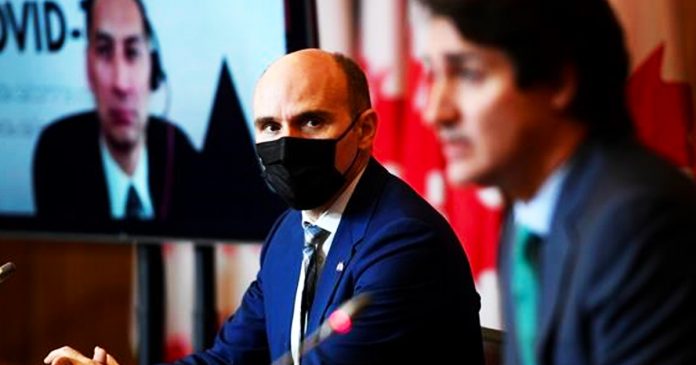On June 14, the Trudeau government at long last lifted federal vaccine mandates for transport and federal workers. The federal government had long been an outlier in continuing with these mandates when they had been lifted by most other advanced countries and most of the provinces. We can speculate on why the Trudeau government acted when they did, which may have more to do with politics than with science.
However, if we run with the idea for a moment that the Trudeau government actually took its decision based on science (whether that’s actually true or not), did it make any sense in terms of the science that they delayed this decision as long as they did?
The short answer: No.
While the government predictably hasn’t shared the models or data that they may have ostensibly used, I’ve done my own number crunching with official data which is publicly available.
First off, I’ve calculated non-ICU hospitalization rates per 100,000 for the unvaccinated and those vaccinated with the original two dose series using official Ontario data from March 1 to June 11. What is striking is that the data tell us that the efficacy of the two dose vaccine series in preventing hospitalization is waning rapidly.
If you compute the data starting on March 1, 2022, then the “excess” hospitalization for those unvaccinated relative to those vaccinated is 3.2 per 100,000 — in other words, about 3.2 more unvaccinated people than vaccinated people, per 100,000 of each group’s population, was hospitalized. This is not a very large number of people.
If you do the same calculation but start from April 1, the excess drops to 2.8. From May, it’s 2.33 and from June 1 to June 11, a few days before the mandates were suspended, the excess is now 0.9, or less than 1 excess hospitalization per 100,000. If these trends continue, the excess will go to zero before too long.
There’s a similar trend when you look at ICU hospitalization. The excess for the unvaccinated if you calculate from March 1 2022 is just below 1 per 100,000. This drops to 0.7 if you start from April, 0.5 from May 1, and 0.1 per 100,000 from June 1. At this point, there’s basically no meaningful difference in the ICU hospitalization rates when you compare the unvaccinated to the fully vaccinated.
In other words, the vaccine mandates were already useless by the time the government suspended them, and they likely had been for quite sometime before that, when other countries were getting rid of their mandates. The government, at best, was catching up with what the science was already saying, rather than some major change in the science prompting their decision. Their claim to be relying on science to make their decision is a red herring at best.
Note, however, that the feds haven’t actually killed their mandates, but just suspended them, which means they could come back. What’s more, they’ve suggested that they want to redefine the meaning of “full vaccination”, which can only imply that they want to include a booster over and above the original two dose series. This is in line with the vaccine enthusiasts and some of the doomsaying experts who have already been calling for: to make boosters mandatory.
Again, we can ask: does the science support making boosters mandatory?
Short answer: No.
I again crunch the numbers. Since the booster is more recent than the original vaccination, is there a difference in hospitalization rate for those who received a booster and those who did not? Unfortunately, we don’t have comparable data for Ontario to be able to answer this question. However, evidence from other countries, in particular the UK, shows booster efficacy in preventing symptomatic disease is basically zero after about 20 weeks, with an almost 50% reduced effectiveness against hospitalization after 15 weeks. Even this protection will likely taper to zero as time passes, as with the original vaccination series, as future studies are likely to confirm.
If the twenty weeks to zero effectiveness after a booster holds true in other studies, it would mean that everyone would have to keep getting a booster about every five or six months to have any meaningful impact on symptomatic disease or hospitalization. We would all be literally on a government-mandated carousel of endless boosters for months or years to come.
So, unless the government wants to mandate boosters for life, there’s no scientific basis for mandating a third dose, another trick the government has presumably kept up their sleeve if and when they are itching to bring vaccine mandates back.





















